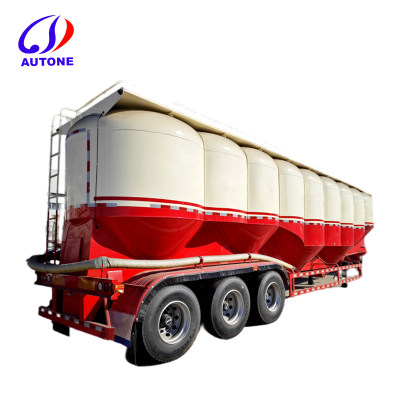Mar. 25, 2024
Semi-trailers, an essential component of the transportation industry, come in various types tailored for specific purposes. Understanding these types is crucial for optimizing logistical operations and ensuring efficient cargo transportation.
Flatbed Semi-Trailers Flatbed semi-trailers are among the most common types, characterized by their flat, open bed design. They lack sides and a roof, providing versatility for loading and unloading various cargo types, including large machinery, construction materials, and oversized items. The absence of walls allows for easy access and simplifies the loading process, making them popular across industries.

Refrigerated Semi-Trailers Refrigerated semi-trailers, commonly known as reefers, are equipped with refrigeration units to transport perishable goods at controlled temperatures. These trailers are crucial for the transportation of fresh produce, dairy products, pharmaceuticals, and other temperature-sensitive cargo. The refrigeration system maintains the desired temperature throughout the journey, ensuring the integrity and quality of the goods.
Dry Van Semi-Trailers Dry van semi-trailers are enclosed trailers with walls and a roof, providing protection from weather conditions and theft. They are commonly used for transporting dry goods such as packaged foods, electronics, and textiles. The enclosed design ensures the security and integrity of the cargo during transit, making them suitable for long-distance haulage and intermodal transportation.
Tanker Semi-TrailersTanker semi-trailers are specialized trailers designed for transporting liquid cargo, including chemicals, petroleum products, and food-grade liquids. They feature cylindrical tanks made of durable materials such as stainless steel or aluminum, capable of withstanding the pressures and hazards associated with liquid transport. Tanker trailers are essential for industries reliant on bulk liquid logistics, ensuring safe and efficient delivery of various liquids.
Lowboy Semi-Trailers Lowboy semi-trailers are characterized by their low deck height, enabling the transportation of tall and oversized equipment such as heavy machinery, construction vehicles, and industrial components. The low deck facilitates easy loading and unloading of tall cargo, while the robust construction ensures stability and safety during transit. Lowboy trailers are indispensable for industries requiring the transportation of oversized and overweight loads.
Understanding the diverse types of semi-trailers is essential for optimizing logistical operations, enhancing cargo safety, and meeting the specific requirements of different industries. Whether transporting perishable goods, oversized equipment, or dry commodities, selecting the appropriate semi-trailer type ensures efficient and reliable transportation, ultimately contributing to the smooth functioning of supply chains and economic activities.
Previous: 5 Must-Have Features in a Municipal Sanitation Truck
Next: None
Related Articles
If you are interested in sending in a Guest Blogger Submission,welcome to write for us!
All Comments ( 0 )